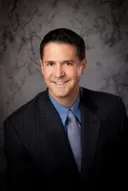A Few Reasons to Be Excited About Healthcare in 2020

Sergey Nivens/123RF.com
The pace of innovation in healthcare would bring a quizzical smile to the forefathers of medicine. By living in the future, brilliant minds are radically altering all aspects of the medical arena in today's world.
Artificial Intelligence in Healthcare
The deployment of artificial intelligence in healthcare is projected to be a $6 billion market by 2020 and $200 billion by 2025. The applications are numerous and have already proven a positive impact.
Automation and efficiency improve mundane and antiquated workflows. The time created can be better directed to the activities that will enhance patient care.
Time-costly yet straightforward tasks such as scheduling are being performed by AI more smartly, maximizing doctor availability.
Medical professionals typically spend 10% of their workweek taking notes or updating electronic health records. As AI begins to systematize these repetitive tasks, doctors are freed to dedicate more time to procedures and patient interactions.
AI algorithms have reshaped medical imaging and are making doctors better when it comes to decision making. The vast data pool far exceeds human capacity, and the implementation of AI systems helps reinject the human side of healthcare and improve the patient experience as well.
AI-powered natural language processing tools free the clinician to face the patient during visits, rather than peck away at a keyboard while staring at a monitor.
AI won't replace doctors but rather empower them with the critical information culled from AI predictive analytics, fostering the delivery of an ultimately higher level of care.
Telemedicine
Take a look at any primary care visit log, and it should be clear that a significant percentage of appointments could be completed by phone, video, or through asynchronous communication. Patients’ time is valuable, and no one likes sitting in a crowded waiting room for a 5-minute asthma med or birth control refill. While the adoption of telemedicine continues to surge, there are numerous untapped applications.
The ease of access, 24-7 availability, and flexibility benefit both patient and doctor. There are always lulls in the middle of the day while waiting for CT results, and this is a perfect time to complete several telemedicine calls. No-shows or time spent idle waiting for a procedure to be set up provide additional opportunities. This is not to imply every second must be maximized, but the income generated in these small moments can remove the pressure to pick up an extra shift or weekend call. Telemedicine can provide a degree of freedom many physicians crave.
Genomics
Combining genomic sequencing, artificial intelligence, and technologies such as gene therapy and CRISPR, pioneers are rewriting the history of medicine.
Access to genomics sequencing has never been more accessible and more affordable. Costs continue to plummet and a variety of companies have partnered to make access to the counselors and testing click-of-the-mouse simple.
Companies such as Illumina are working to sequence patients' genome in one hour for around $100. Consider the exponential reduction in cost and improvement and time compared to just a few years ago
The use of our biology as a technologic tool to manipulate pathophysiologic processes continues to evolve at a brisk pace.
Scientists and physicians edit missing or defective DNA inside cells and also repair DNA, allowing precise targeting - in effect rewriting DNA in a disease-free way. Science has gotten so good now that a single letter (base) in a string of DNA can be targeted and corrected.
You might ask what's the big deal about a single base correction? Think about a condition such as sickle cell anemia and the 50,000 other single-letter genetic changes that are associated with disease and how correcting that would change the lives of millions.
The same techniques and tools will allow the delivery of a hyper-personalized type of care. Instead of generalized advice, doctors will now be able to deliver targeted lifestyle, nutrition, and exercise prescriptions based on the unique genetics of a patient. The N of 1 era is upon us. The same information can be utilized to help patients proactively address potentially life-threatening or longevity altering conditions well before the surface. Preventive care will take on a form unrecognizable by current standards.
Healthcare Beyond 2020
Keeping pace with medicine's rapid evolution is daunting. Fortunately, conferences and groups are surfacing to foster a degree of understanding, collaboration, and innovation. The rise of the machine is inevitable - it's time to put fear aside and embrace the change.
Related Posts
